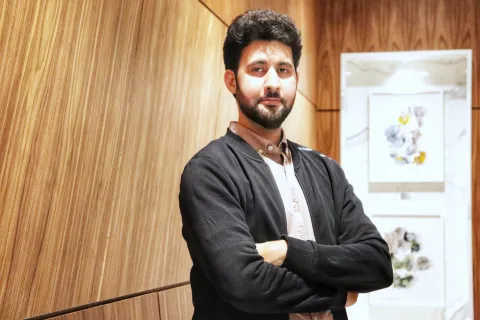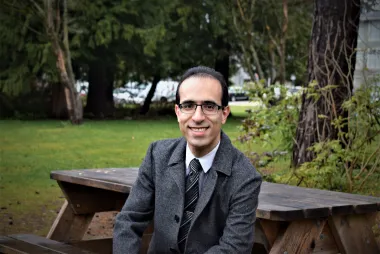"A key is to love what you do. Keep looking until you find your passion!"

Mohammad H. Jafari
- Degree:
- Doctor of Philosophy
- Grad year: 2021
- Program:
- Campus: Vancouver
I am a machine learning scientist with software engineering background, aiming to innovate improved solutions for healthcare challenges. I recently completed my Ph.D. in Electrical and Computer Engineering department at UBC with my research focused on machine learning. Before that, I finished my B.Sc. and M.Sc. degrees in Computer Engineering-Software.
Traveling from a far kingdom, I arrived in UBC Vancouver in 2017, starting a fruitful journey with many ups and downs, learned lessons, and incredible opportunities. For the next chapter of my life, I will hold a post-doctoral position at Harvard Medical School, intending to further pursue my research curiosity.
Why did you choose to go into your field of study at UBC?
UBC is a top world institute for interdisciplinary research in biomedical engineering, computer science, and medicine. Here, I had the chance to learn from many talented colleagues and lab mates, specifically my Ph.D. supervisor, Prof. Purang Abolmaesumi. Furthermore, Vancouver is a nice place to live, known for its beautiful nature, diverse culture, and growing tech industry.
What has made your time at UBC memorable?
I am thankful to UBC for many pleasant memories. I lived on campus in a vibrant community, enjoying morning runs in colourful and reviving sceneries of UBC. I had the joyful experience of teaching courses, recording lectures at UBC studios, and having cheery discussions with Prof. Matt Yedlin in designing the ECE ML course. My conference travels also had many memorable moments, having the chance to present my research across a broad audience, and being fortunate to have my work recognized through best paper awards, nominations, and clinical adaptation.
Tell us about your experience in your program. What have you learned that is most valuable?
A valuable aspect of my time at UBC was the opportunity to interact with a diverse group of engineers and clinicians. The successful translation of AI methods to healthcare heavily depends on effective communications with clinical colleagues. True to any research project, I think the key is to appreciate the values of team communications. No one can do it all alone; none of us can be as smart as all of us (quoted from Ken Blanchard).
What advice would you give a student entering your degree program?
I think for continued progress, you will need to love what you do. In the early stages of the degree, try to explore as many diverse topics to help you find the path that keeps you motivated. Later, you will be more focused on one or a few topics. Keep looking until you find your passion. Dream big, go beyond, you won’t regret it.
Remember that long-term research, deadlines, rejections, etc., can be frustrating. Try to expand and diversify your connections beyond the people in your domain and line of thought. Remain positive, reachable, and supportive. Enjoy the rise by lifting others.
Where do you find your inspiration for using your degree to make an impact on our world?
A source of inspiration for me is to follow and contribute to the relatively rapid evolution of the artificial intelligence field. AI has already transformed many aspects of our lives by automating manual and repetitive tasks, and helping us make smarter decisions. Furthermore, observing the impact of intelligent biomedical tools on patients' well-being has been another motivating pillar for my research.
What are your future plans to make a difference in our world?
I plan to continue my research in AI and medicine. As an example, the recent over-exertion of clinical personnel during the COVID-19 pandemic exposes the current constraints of healthcare systems. Improved software pipelines and AI tools can help clinicians in numerous aspects, increasing patient throughput, reducing human error, and enabling remote medicine. Meanwhile, the integration of AI in healthcare faces critical risks and challenges, such as AI robustness, explainability, bias, fairness, privacy, etc. These challenges pose opportunities for exciting research questions, carving the path to the next generation of AI solutions and healthcare frameworks.


